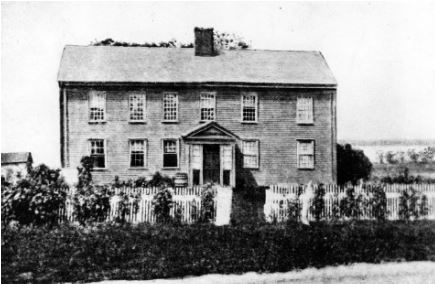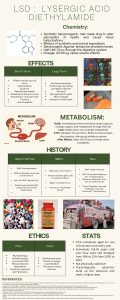How tragic is it when an innocent person goes to prison or is wrongfully convicted and sentenced to death? Our judicial system is suppose to be fair. However, there have been numerous cases in which a defendant has been pronounced guilty, but is later found to be innocent. The case of Thomas Cornell is an example of this. He was sentenced to death for murdering his own mother, Rebecca Cornell. There is no evidence for the death of Rebecca, yet I argue that a jury wrongfully convicted Thomas. What happened to Rebecca Cornell that night remains a mystery. However, it is possible that Rebecca committed suicide, and it is also possible that a group of people from the outside broke in and brutally murdered her. These plausible scenarios are, in fact, more probable than is the case for Thomas, her own son, murdering her.

Seventy-three year old Rebecca Cornell’s last moments on this Earth have had to have been one of the strangest, most peculiar moments ever. In early February 1673, Rebecca was found burnt, with flames all around her, lying some distance away from the hearth in the downstairs room of her house when Sarah, Thomas’ wife, had asked their son to ask Rebecca if she wanted something to eat. However, when he went downstairs, he noticed Rebecca’s body so badly burnt that he almost could not recognized her.1 Hours before this occurred, Thomas had spent more than an hour talking with his mother when he decided to go upstairs with his wife and kids. He had left his mother peacefully sitting by a large fireplace in her bedroom smoking a clay pipe.
According to the jury, Thomas Cornell may have murdered his mother, but there are other plausible explanations for what could have happened that night. For one, Rebecca could have committed suicide. James Moills, a good friend of Rebecca, testified that on the day of Rebecca’s death, he had noticed that Rebecca had looked ill, and did not seem herself on the day of her death. He then said that he continued to check up on her throughout the day to make sure that she was okay. Rebecca was ill the entire day on the day of her death. This meant that Rebecca could have fallen by the fireplace by herself. Ill people tend to feel clumsy due to how bad their body is at that state, resulting in less self control.2
Another possible reason for what could have happened on the night of Rebecca’s death is that she could have been murdered by a person or a group of people because two days after Rebecca’s death, John Briggs, Rebecca’s brother in law, claimed he was visited by Rebecca’s ghost, who stated, “Twice sayd, see how I was burnt with fire?” Rebecca was trying to tell her brother-in-law that her death was no accident. She failed to accuse the specific person of her death, but told Briggs that it was someone. Briggs took his testimony to the court and told the officials what he had seen. In the seventeenth century, protestants believed that the spirit of a dead person would appear if there had been “an injustice that might not be detected by other means.” They believed that such a spirit’s appearance was God’s way of ensuring that a murderer would be exposed.3 This then helps me conclude that Rebecca could have been murdered by a person or group of people, because two doors are connected to Rebecca’s bedroom. One is connected to the inside of the house while the other is connected to the outside. People from the outside had access to Rebecca’s bedroom, and if executed promptly, a number of people could have gone into Rebecca’s bedroom and murdered her and been able to escape swiftly without anyone having known. But if a person or a group of people did this, why did they do it? Could it have been because of her family’s reputation?4

Thomas Cornell Sr. and Rebecca Cornell lived in Portsmouth, Rhode Island, along with their four daughters and three sons. They formerly lived in Boston, where they had planned to stay for the rest of their lives when they arrived from England in 1627. Thomas Sr. and Rebecca Cornell bought a house and 112 acres in Boston from William Baulston, a settler who abandoned Boston to go to Portsmouth, a new settlement Rebecca’s brother, John Briggs, along with other settlers had found.5 In 1640, Thomas Sr. and Rebecca Cornell’s family decided that it was best to leave Boston and move to Portsmouth due to a number of fines Thomas Sr. had received. The fines consisted of drinking heavily at the pinnace, selling wine without a licence, and selling beer above the maximum allowable price. As soon as they arrived in Portsmouth they were welcomed, and they immediately made Thomas Sr. a freeman meaning he was able to purchase land in Portsmouth and within a year Thomas Sr. had been granted meadow land and made constable of Portsmouth. In the next couple of years, Thomas Sr. prospered in Rhode Island. The Governor Kieft of New Netherlands awarded Thomas a tract of land in 1646, seven months before the town of Portsmouth allotted him 100 acres of land where his widow would meet her tragic death more than a quarter century later.6
The jury was wrong in accusing Thomas for the murder of his own mother. However, the jury’s information about Thomas that led to his conviction was mainly based on Thomas’s relationship with his mother. Their relationship was filled with bitterness and hatred that was badly fueled with financial conflict.7 Despite Thomas living in his mother’s household, Rebecca made Thomas verbally pledge that he would pay rent to her while also providing and paying for a maid to take care of her during her remaining years.8 To continue this bitter relationship, in Rebecca’s will, all of her estate was to be equally divided among her children, whom she listed by name. All of her sons and daughters received a part of Rebecca’s property, such as clothes, valuable objects, and even one of her daughters, Mary, inherited her mother’s gold ring. All the children except for Thomas was mentioned in Rebecca’s will. Even Thomas’s first wife was mentioned in her will. This was because Thomas was the only son living with his mother, along with his wife whom Rebecca loved. Unfortunately, Thomas’ wife died a couple years after Rebecca signed her will. Shortly after, Rebecca was asked as to why she did not live with any of her other children. She said that if she knew Thomas’ wife was going to pass, she would have left years ago.9 This shows how bitter Thomas’ relationship with his mother really was. Despite their relationship, this does not mean that Thomas necessarily murdered his own mother. Almost every human beings argues with their mother, its just what we do; however, we don’t go and murder our own mothers.

Although the case of Thomas Cornell was closed, it was never solved. The jury found Thomas guilty of murdering his mother, but his decision was not certain. The testimony suggests that Thomas had the opportunity to kill his own mother; however, that doesn’t necessarily mean he did. There was no one there to see the death of Rebecca, nor was there a murder weapon found at the scene. To this day, this mystery has not found the proper reason as to what happened to Rebecca Cornell for her tragedy on February 8, 1673.
- Cornelia Hughes Dayton, “Getting Beyond ‘Who Done It,'” in Common-Place (2003): 1. ↵
- Elaine Forman Crane, Killed Strangely: The Death of Rebecca Cornell ( Ithaca: Cornell University Press, 2002), 114. ↵
- Cornelia Hughes Dayton, “Getting Beyond ‘Who Done It,'” in Common-Place (2003): 1. ↵
- Elaine Forman Crane, Killed Strangely: The Death of Rebecca Cornell ( Ithaca: Cornell University Press, 2002), 114. ↵
- Elaine Forman Crane, Killed Strangely: The Death of Rebecca Cornell ( Ithaca: Cornell University Press, 2002), 61-62. ↵
- Elaine Forman Crane, Killed Strangely: The Death of Rebecca Cornell ( Ithaca: Cornell University Press, 2002), 65. ↵
- Elaine Forman Crane, Killed Strangely: The Death of Rebecca Cornell ( Ithaca: Cornell University Press, 2002), 106. ↵
- Cornelia Hughes Dayton, “Getting Beyond ‘Who Done It,'” Common-Place (2003): 1. ↵
- Elaine Forman Crane, Killed Strangely: The Death of Rebecca Cornell ( Ithaca: Cornell University Press, 2002), 79-80. ↵



69 comments
Roberto Rodriguez
It is a horrific thought that you could be accused of something that you did not do, I think everyone has experienced that once in their life or at least to a degree. It is terrifying that someone was sentenced to death for basically nothing but a rumor. It is a tragedy and it is good to know that we have learned from our mistakes and when people are accused now they are “innocent until proven guilty” rather than vis versa.
Alin Bocardo Felix
This article reminds me of another in the Media Page, I don’t remember the name exactly, but it encompassed a daughter’s ghost telling her mother that her husband had murdered her. It is interesting to read that during specific time periods people actually held spirit sighting as evidence in a case of murder. Although the real murderer was never found, what happened to the older lady is tragic, but the lack of technological advancements for crime scenes is what really held them back. The article is very detail-oriented, but it’s a little too detailed for it to have been so long ago without means of recording all that.
Hannah Hennon
This article is interesting. Since there was only evidence of Thomas’s relationship with his mother, Rebecca, I do not know if I would say Thomas killed his mom. It must have been harder during this time because there was no real, hard evidence to convict Thomas with. The jury had to just go off on the relationship that Thomas had with his mother.
Thalia Romo
Open file cases, such as the one of Rebecca Cornell, are intriguing to me. I, myself, wouldn’t know what to say about this case. I feel that there wasn’t even evidence present in order to state a definite answer. The jury blaming Thomas, in my opinion, was primarily based off of characteristics and the relationship between Thomas and Rebecca. Although the relationship could help with a sense of direction for the jury, it shouldn’t have been the main point.
Kristina Tijerina
This article was interesting to read. Thomas was convicted of murdering his own mother without any hard evidence. I’m not sure that I believe that he did murder her, however I do think that there is a possibility that he could have. Thomas’ relationship with his mother was very strained, but that’s not enough reason for him to murder her. In Rebecca’s will, she included each one of her kids except for Thomas, which makes it less likely for Thomas to kill her. Why would he kill her if he was getting nothing in return? There’s usually a motive when people murder someone, and I feel like Thomas didn’t really have a motive. I think that Rebecca might have fallen into the fire on her own since it was stated that she was very ill the day of her death.
Sebastian Azcui
This article is very well written and impressive. I can’t believe how cases were handled before and how they were judged. How can someone be convicted of crime for murdering your own mother and not have concrete evidence. The only “evidence” there is, is because of a dream that the spirit told his mother’s brother in law that he was the murderer. He was seen as an “easy target” I believe because even though he was not that close with his mother, he could take her of her in any way and would not have any reason to murder her.
Nicole Ortiz
It astonishes me seeing how so many people can be accused of a crime they never committed and there’s no physical evidence whatsoever to prove that they did it. This case is really weird since theres no facts that can be used to try and solve this murder but I don’t think the son killed his own mother. There’s just no way that a child can kill their own parent, no matter the circumstance. I feel like its more believable that she killed herself or that there was a group of people that murdered her because they can actually be backed up with more reliable evidence than to just assume that the son did it just because they had a tough relationship and lived together.
Gabriel Lopez
I agree with how bizarre this case is. Sure, Thomas had a bitter relationship with her mother, but it didn’t seem like it was enough to be a reason to kill her. Also, claiming that people saw a “spirit” of Rebecca that said that it was a person that killed her doesn’t seem reasonable at all. What I was thinking was that the clay pipe that she was smoking could’ve had something to do with her death, and maybe she was so ill that she wasn’t thinking straight and decided to try to light it with the fireplace, but that’s just a funny thought. Aside from that, I thought this was a really interesting article.
Nelly Perez
There was not enough evidence at the time for the culprit to be caught. Sure, the brother’s dream seemed reliable, but he could have only said that possibly to defend himself. Thomas did not have a good bond with his mother, but that would not lead to bad intentions.
Amelia Hew
To be honest, I can’t believe that Thomas was accused for murdering his own mother just because his mother’s brother-in-law said that her spirit came to his dream hinting that she was murdered. Even if Thomas’s relationship with his mother is bitter, doesn’t mean that he’ll 100% murder his own mother. He even taken cared of her and supported her financially and even hired someone to take care of her so that she can live comfortably. No matter what the others said, this case will forever remain a mystery that may never be solved.